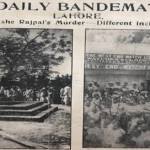There are many kinds of writing lives, and yours includes a day job.
In 2002, when I was about to graduate from college, I took a fiction workshop with writer and editor Ava Chin. We sat in a bright room around a long table with someone’s short story in front of us. At one point, during a lull, Ava asked us what we imagined our writing lives would look like once we graduated. I had not thought about this. I was in denial about leaving school and my friends and didn’t like to focus on the dark, unknowable life ahead. I assumed I’d be going into an MFA program anyway and wouldn’t have to think about the real world for some time. No one answered, so Ava explained that the time we had to write and think about writing at this moment in our lives could be represented like this: she held her hands wide apart from each other, as if she were waiting for one of us to embrace her.
“But, once you’re out there,” she said, and her hands came together, closer and closer. Such a little space. No room for us in there. Her face reflected the sadness of this fact. Writing would shrink.
After the workshop, none of us talked about what we’d discussed, but I’m sure we were all thinking about it. I told myself that I’d never have a problem making writing a priority, that whatever else my life required of me, writing would remain the center. I hadn’t thought about getting a job after school, not once, and at twenty-two, I had only imagined a writer’s life that I now know doesn’t exist for most people. All I wanted to do was be a writer. The whole supporting-myself problem didn’t hit me until the day my parents packed me into their car and brought me home again. They gave me one day to grieve my undergraduate life. At breakfast, the next morning, my mother looked at me and said: “You have to get a full-time job.”
I don’t teach and I don’t have children, but I’ve had a day job for a long time, almost twenty years. Writing is something I want and need to do, and working a job to support myself keeps me away from it for the majority of my time on this planet. I’m still trying to figure out the best way to do both, and there’s no mastery. That doesn’t mean it’s not worth trying.
After college, I worked in a big-box bookstore and applied to MFA programs, none of which I got into. I would not be writing all day in Michigan or Yonkers or Iowa, as I’d imagined. I’d be working at this bookstore, sometimes until midnight. Late at night, in my bedroom in my parents’ house, I tried and failed to write a novel while our elderly dog snored just inside my door. The retail schedule frequently allowed me to stay up late. I still felt like I had plenty of time to work on writing, and I fully believed in every project, expecting to finish and publish them. None of these stories or pieces of novel exist anymore. They all died with my early 2000s PC.
Many of my coworkers were writers too. We committed, formed a writing group. We wanted to center writing in our lives, and it wasn’t that hard to do in a bookstore, though sometimes we forgot we worked among books. Retail can be soul-sucking, even when you’re surrounded by something you love, but the writer friends I made there are still in my life.
I was twenty-six when I left the bookstore and got a civil service office job at a state university with stabler hours, and I knew my writing life would change. I could no longer stay up late and wait for that perfect silence, when everyone is sleeping and you’re completely alone. It was amazing how much work I had generated in the late-night, early-morning hours, but with my new job I had to get up at 7 am, so I would have to fit writing in sometime between when I got home and went to bed at a reasonable hour. I’m not one of those people who can stay up late and wake up on time for work.
I became a low-level data processor in university admissions. I liked the idea of being surrounded by filing cabinets and stacks of paper. I imagined that I was like Kafka, toiling away at the Workers’ Accident Insurance Institute. This was a job to pay the bills, not give my life meaning. The meaning waited at home. No one bothered me in my shabby cube as I typed data into the computer. If it was slow, I’d open an email draft and write a short paragraph, something for my latest going-nowhere novel that I would retype when I got home. I wrote when I felt like it after work, sometimes sitting on the couch with the TV playing silently in the background.
I didn’t create a consistent schedule until, afraid I’d never finish a novel draft, I wrote something I knew could finally be the novel I’d always wanted to write. I was about to turn thirty-five.
A friend suggested I join her in participating in NaNoWriMo, which had never previously appealed to me, as a slow writer. I went against my natural instincts, writing without judging the quality, and passed the fifty-page mark, where I usually got stuck. Sometimes the fact that you’ve added another paragraph to something is enough; I wrote a terrible thing very quickly. I don’t think I’ll ever write a novel that way again, but it helped me get over a wall I didn’t know I’d put up. In fact, if you struggle with finding time to write after work, it might be a good idea to think of quantity rather than quality: Get the words on the page as quickly as you can when you have a moment to sit down.
This project contained, inside the wreck, everything I cared about, everything I wanted to say. The novel taught me how to be a writer with a day job and get things accomplished out of necessity. I wasn’t just tinkering, as I’d been for years, though I didn’t know that’s what I’d been doing. I cared about this mess and wanted to find a good book within it.
Every night, I came home to my attic apartment and confronted my book. I made the conscious decision to follow a schedule to complete the work I knew the novel needed. I changed out of my work clothes and into loungewear so I wouldn’t be tempted to leave again. I promised myself I would write after I ate an extremely early dinner. Geriatric early. I put my phone on silent. At 7 p.m., I sat at my desk and worked. Living in this dark apartment at the top of a house helped me separate myself from the world I’d just been moving around in. Out the window, I saw the tops of trees, the sky, and nothing else.
I told myself I would work for thirty minutes, because that is not an intimidating amount of time. (I recommend scheduling your writing time in thirty-minute intervals. You’ll probably go over that anyway.) During those thirty minutes, I occasionally found something interesting in the terrible draft, something that resembled what I had in mind for my book. I pasted those sentences into a new document and expanded them. I did this for a year, and then over the next four years, a half hour to an hour a night, I revised my novel.
*
I feel most excited to get home and write when I still have three hours of the workday left, so by the time I get home, that feeling has fled. I wish I lived the kind of life where I could follow inspiration and write when the desire strikes, but I don’t. Here is where dedication to the schedule comes in handy, whatever schedule you set for yourself. I’m a Capricorn, and if it’s on the calendar, even just the calendar in my brain, I want to do it rather than feel the shame of not doing it. Having said that, sometimes I’m too tired. I’m certainly not going to tell you to write every day, but maybe look at your project every day. Be nice to yourself: You’re toiling under capitalism, and you’re tired. You care about art in a society that doesn’t. It’s okay to skip fiction writing sometimes, but not too much.
The novel taught me how to be a writer with a day job and get things accomplished out of necessity.
You want to write. It enriches you; it confounds and challenges you in ways that will never work. Your job might make you cry from stress, but writing makes you cry because it’s pushing you toward something you’re afraid of. Writing deserves your attention. Some evenings, you will be too tired, too stressed, but you’ll sit down and do your half hour (or more), or you’ll just look at the novel or story. Looking keeps you in touch with it, keeps you connected to that place you go when you write. If you’re writing a novel and you actually want to finish it, you might have to say no to some dinner invitations, or you might, like me, forget to go to the gym for weeks at a time. We can’t always do everything, but we can look, add a sentence. It might lead to another sentence, and another after that.
I imagine leisurely Saturday mornings, typing paragraph after paragraph, but more often I use Saturday to do nothing that requires much brain power. I’ve made writing fiction a part of my workweek, so I don’t feel much shame about taking Saturday off. I’m also spending time with my partner or family, who have been gracious enough to understand that I need time during the workweek to write things. You might want to save your weekends for writing. If you’re able, make your weekend a home retreat. Turn off your phone if that’s feasible. If you have kids, of course, weekends are probably very busy for you.
Totally the first few years of working my office job, I thought a lot about other writers. If you’re like me, you’re haunted (or hunted) by the feeling that other people are pulling ahead as you lag behind. Other writers are living writerly lives, while you’re filing and answering emails. Here you are sitting in a cubicle or at a meeting, and your friend is in the woods finishing her novel. People are traveling and going to monthlong residencies and you are not a real writer. It’s a poisonous feeling, and you need to wash it out with reading, with time away from social media (which is the hardest for me), and, yes, with writing. The act of writing will redraw your focus to the whole point of working a day job: You’re working a day job so you can support yourself and write. There are many kinds of writing lives, and yours includes a day job. We’re all getting it done in our own way, on different paths, at our own speed.
Writing with a day job teaches the writer a valuable lesson: patience. The working writer has no choice but to pace himself; they have to think about writing rather than write. They have to be notetakers and voice-recorders. A friend of mine works out entire short stories in her head during the workday, then gets home and writes a quick draft. During the tough periods of the novel-revision process, I used my workday to escape from thoughts of my book, which weighed heavily on me. By the time I got home, I could sit with it again.
The idea of letting a story rest for a month (or five) doesn’t bother me as much as it used to. I have been waiting for a long time. Waiting to go home and write, to finish something, to move forward with writing goals. Not waiting, exactly—working. It slowed me down, and I’m already slow. There were times when this caused frustration or depression, but working a day job, crawling instead of running with my writing, prepared me for the slow process of revising my novel and, later, submitting it. Having to schedule time to write, to wait to get home from work, gave the process a feeling of desperation. I didn’t have all the time in the world. None of us do. We’re busy. So I made sure to be in the chair for my half hour.
There are always new problems, interruptions, confusions. In a Paris Review interview from 2014, the writer Jenny Offill has this to say:
“One of the odd things about being a writer is that you never reach a point of certainty, a point of mastery where you can say, Right. Now I understand how this is done. That is why so many talented people stop writing. It’s hard to tolerate this not-knowing.”
I think of this quote often. It’s a painful reality, but it’s comforting to hear a writer like Offill say it. At first, I related to it as someone who never knows what he’s doing when he starts
writing something, someone who knows the disappointment that comes with realizing that what he learned from his previous project might not help with the new one, that though he’d completed something, he hadn’t mastered writing itself.
Now, I think the quote how I feel about juggling working and writing. My schedule for my first novel may not work for this next one. Every day is like opening the novel or story draft and discovering another puzzle, or the piece that solves it. Every day I try to figure out how to work and how to be a writer at the same time. What did I learn today about how to live this life? Maybe we’re teaching ourselves how to do it as we’re doing it, the way some difficult books teach us how to read them (or write them).
Ava Chin was right when she told us that the writing part of our lives would shrink, but I’d misunderstood. The time you have to actually sit down and write shrinks, but writing still billows through everything. It becomes a twin life, something hovering within your daylight existence. It’s more important to me now than ever before. I carry it with me as a reminder to examine everything, that work is not just work but a part of life that can feed writing. I have a new job now, in an office working with supportive coworkers who know I’m a writer. They’re readers! I feel more like a writer at this job. I brought books to the office and put them in the meeting room. I taped a Joy Williams quote to my desk. Still, most of my time is not my own, so the time that is mine must be shaped around writing.
I don’t have magic advice for other working writers. All I can say is it’s worth it to endure the not-knowing, the slow pace, the waiting, the shifting around of time, finding time. It’s worth it to do the most you can to keep writing in your life.
BY R MIRABELLA













Thanks.